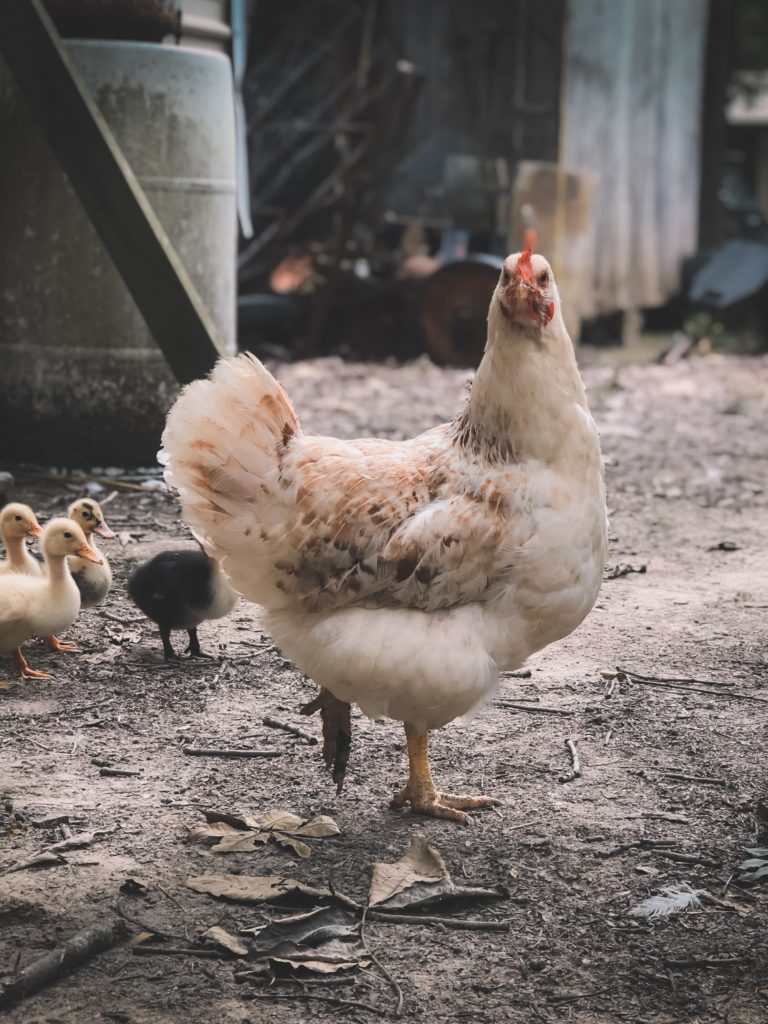More false diminutives in Portuguese Posted by carol on Jun 24, 2021 in Brazilian Profile, Culture, Grammar, Learning, Slang, Vocabulary
Olá, pessoal! Tudo certinho? As I told you in our previous post, the list of false diminutives in Portuguese can be long and language learners should be aware of them to avoid any possible misunderstandings (as we’ll see below!). So the time has come for part 2. Vamos nessa?
Galinha | Hen
É a fêmea do galo.
- Gosto de comer galinha caipira quando vou visitar Minas Gerais | I like to eat free-range chicken when I visit Minas Gerais
- A galinha do sítio está botando muitos ovos | The farm hen is laying a lot of eggs
Campainha | Doorbell
O sino que tocamos ao chegar em uma casa.
- Quando você chegar na porta de casa, toque a campainha que eu abro a porta | When you get to the front door, ring the bell and I’ll open the door
- Não estou escutando nenhum barulho, será que a campainha está funcionando? | I don’t hear any noise, is the doorbell working?
Farinha | Flour
Este é o nome do pó.
- No almoço aqui de casa não pode faltar farinha de mandioca nem feijão | For lunch here at home, cassava flour and beans are a staple
- Estou pensando em fazer um bolo, mas vou ter que comprar farinha de trigo no mercado | I’m thinking of making a cake, but I’m going to have to buy flour at the market
Cozinha | Kitchen
É aqui onde fazemos nossa comida.
- Por acaso você achou meu celular? A última vez que o vi foi na cozinha | Did you happen to find my cell phone? The last time I saw him was in the kitchen
- Nossa, que cozinha linda e agradável você tem! | Wow, what a beautiful and nice kitchen you have!
Minha | My, Mine
É o feminino de “meu”.
- Minha esposa ficou doente por algum tempo, mas já está se sentindo bem | My wife has been ill for some time, but she is already feeling well
- Você lembra da minha avó? Ela morou nesta casa por muitos anos | Do you remember my grandmother? She lived in this house for many years.
Ninho | Nest
Abrigo ou refúgio, normalmente usado para se referir ao lugar onde as aves colocam seus ovos.
- Olha ali no alto da árvore, tem vários ninhos de pardal! | Look there at the top of the tree, there are several sparrow nests!
- Estou com muito sono, vou para o meu ninho dormir | I’m very sleepy, I’m going to my nest to sleep
Sozinho | Alone, By myself
Quando se está só ou isolado.
- No início da pandemia, me sentia muito sozinho, mas agora já me acostumei | At the beginning of the pandemic, I felt very lonely, but now I’m used to it.
- Nessa viagem você estava sozinha ou foi com suas amigas? | On this trip, were you alone or did you go with your friends?
Moinho | Mill
Equipamento normalmente usado para moer grãos.
- Antigamente as pessoas construíam moinhos ao lado de rios e córregos para moer milho | In the past, people built mills next to rivers and streams to grind corn
- A paisagem holandesa é muito conhecida pelos moinhos de madeira | The Dutch landscape is well known for its wooden mills
Vizinha/Vizinho | Neighbor
Aquela pessoa que mora ao lado.
- Nossa, o sal acabou. Vou pedir ao vizinho um pouco emprestado | Wow, the salt is gone. I’ll borrow some from the neighbor
- Ela foi minha vizinha por muitos anos, mas agora se mudou para outro bairro | She was my neighbor for many years, but now she has moved to another neighborhood
If you want to check out um relato engraçadinho (a funny story) from BBC news of an Australian living in Brazil about our use of the diminutive form, click here . We hope you enjoyed our text and don’t forget to comment below on other words that are false diminutives you know. Até a próxima!

Build vocabulary, practice pronunciation, and more with Transparent Language Online. Available anytime, anywhere, on any device.






